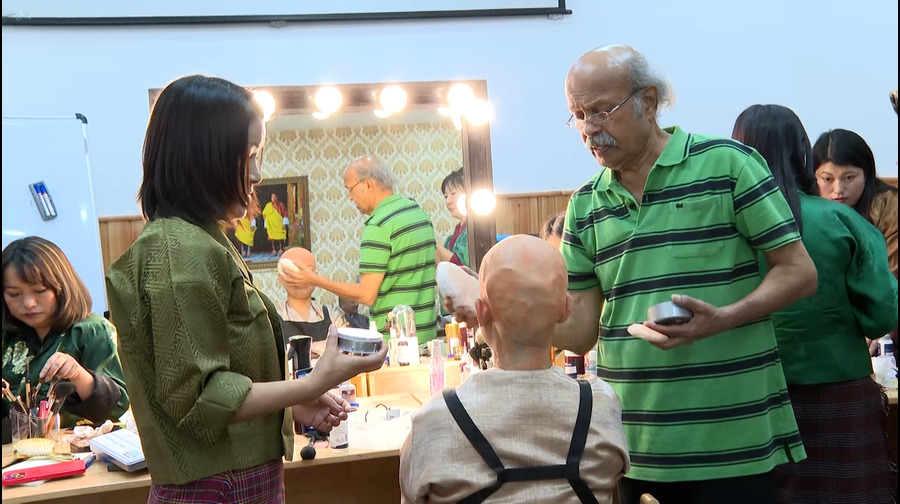
Bhutanese films are expected to see higher standards in makeup and prosthetics, bringing more lifelike characters and effects to the screen. An advanced training on special effects and prosthetic make-up, led by an award-winning Indian make-up artist, concluded yesterday in Thimphu. The Film Association of Bhutan organised the 13-day programme with support from BICMA.
From building realistic scars to prosthetic body features and hairstyling, changing a person’s looks completely, Bhutanese make-up artists are sharpening their craft.
For nearly two weeks, 18 Bhutanese make-up artists learned advanced training on prosthetics and cinematic make-up.
The sessions were entirely practical, allowing participants to experiment techniques rarely seen in Bhutanese films.
Kinley Zam, a participant said, “My head is not bald by nature. It is makeup and it looks realistic. I realised I have to experiment the makeup and prosthetics before I do it on actors. This helps me to understand what I am doing on another person’s body and learn how to make it comfortable for them.”
Tashi Pemo, another participant said, “Although we had good makeup artists, we did not have good materials and training on makeup and prosthetics. So, we could not make realistic looks according to scenes. However, these classes have helped us understand how to do realistic prosthetic makeup in films.”
Trainer Ramakrishna N.K said that the talent he saw here can grow rapidly with right exposure and practice. He said Bhutanese makeup artists have potential to take prosthetic makeup forward in Bhutan.
“They have learnt very keenly. They have observed in detail, putting lots of questions to understand prosthetic materials and how to understand them. After teaching about them, they did it by themselves and I think they will be able to do these by themselves now.”
For the Bhutanese Film Association, the aim is clear, to raise the technical standards of local cinema.
Yeshey Tshering, the President of the Film Association of Bhutan said, “Our motive is to uplift the industry in terms of makeup and prosthetics. Because to be very honest, we lack specialisation. We could see what sort of makeup we actually had. Now, with this training, we are hoping that we can really improve in storytelling.”
Participants carry home not just new skills but an anticipation to transform Bhutanese cinema with more authenticity and creativity.
The film association looks forward to continue such programmes as Bhutan’s film industry pushes towards higher quality and professionalism.
Namgay Dema
Edited by Tandin Phuntsho









